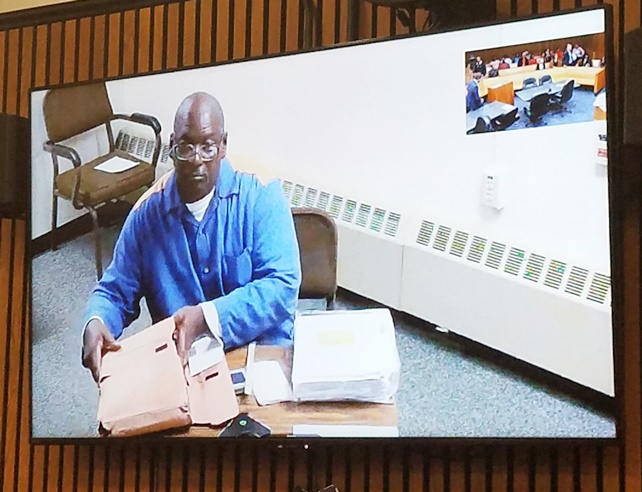
Charles K.K. Lewis on video in court Sept. 28, 2018
Motions to dismiss his case in limbo until judge returns from medical leave in December, after two-and-a- half years of hearings
Citing ‘lost’ court file, prosecution signals that judge has authority to grant Lewis a term of years, take LWOP off the table
Atty. Deborah LaBelle reports on current status of state’s juvenile lifers: 236 yet to see a judge for re-sentencing, six yrs. after Miller v. Alabama
By Diane Bukowski
October 11, 2018
DETROIT – Charles K.K. Lewis spoke out powerfully at the conclusion of his 36th juvenile lifer re-sentencing hearing in front of Wayne County Circuit Court Judge Qiana Lillard Sept. 28. Reviewing 42 years of his incarceration since his murder conviction at the age of 17, he declared the justice system in the U.S. has failed him and members of Black and poor communities across the country since its inception.

SANTA CLARA, CA – OCTOBER 23: Eli Harold #58, Colin Kaepernick #7 and Eric Reid #35 of the San Francisco 49ers kneel for the anthem prior to the game against the Tampa Bay Buccaneers at Levi Stadium on October 23, 2016 in Santa Clara, California. The Buccaneers defeated the 49ers 34-17. (Photo by Michael Zagaris/San Francisco 49ers/Getty Images) *** Local Caption *** Eli Harold;Colin Kaepernick;Eric Reid
“This is the reason why you have guys like Colin Kaepernick taking a knee,” Lewis said, addressing the court on video from the Lakeland Correctional Facility.
“This is the reason why you have NBA players stepping up saying hold up, wait a minute, the system has gone too far. It’s not working. We got to do something about this. This is the epitome of that. This is a blatant example of what people are protesting about and marching in the streets–a lack of justice. This is it right here. So I’m saying when you go in your chambers and you sit down and evaluate that, think about that.”
Lewis is one of 236 juvenile lifers in Michigan, 70 percent of them people of color, currently serving sentences outlawed by the U.S. Supreme Court in Miller v. Alabama (2012) and Montgomery v. Louisiana (2016). He is the first of the 236 still facing recommendations of new life terms to be heard in court. His re-sentencing hearing began in March, 2016.
In an ongoing federal case, Hill v. Snyder, U.S. District Court Judge Mark Goldsmith appointed Attorney Deborah LaBelle as the official representative of the entire class of Michigan juvenile lifers, and also restored the use of “good time” credits to the class. State statutes enacted in 2014 (MCLA 769.25 and MCLA 769.25a) denied the use of these credits, which shorten time served, only to juvenile lifers in a discriminatory scheme.
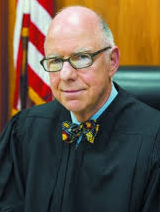
Judge Mark Goldsmith

Atty. Deborah LaBelle
LaBelle said, “In general the State has complied with the Court’s orders for restoration of earned good time and disciplinary credit for the Hill class. There have been difficulties with them complying with the court’s orders for calculation of good time and disciplinary credits, when it results in people maxing out. There is a pending motion to compel defendants compliance on this — as they violated policy to keep people in longer.”
Regarding the current status of Michigan’s juvenile lifers, Atty. LaBelle reported to VOD, “The following is the data to date: nineteen of the Hill class members have now been fully discharged off of parole. Forty-three additional class members have been released on parole. Seven more Hill class members have been granted parole but have not yet been released, pending completion of in-reach parole readiness activities and release schedules. Nine Hill class members have been interviewed for parole consideration and have a decision pending; 53 Hill class members have been re-sentenced but are not yet parole eligible due to their re-sentence terms.; 238 Hill class members have yet to have their re-sentencing completed.”
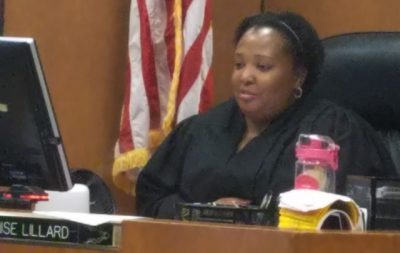
Judge Qiana Lillard at hearing Sept. 28, 2018
During the Sept. 28 hearing, Lewis’ attorney Sanford Schulman argued multiple motions to dismiss his 1976 first-degree murder case and grant him bond pending re-sentencing. AP Thomas Dawson contended the majority of the motions were appropriate only as appellate motions for re-trial, rather than for re-sentencing. He said issues in them had already been addressed in previous appeals. However records of those appeals prior to 2000, including Lewis’ first appeal of right, are also missing, so it is not known WHAT was argued in them.
Judge Lillard then announced she will be on medical leave for the next two months and will issue her written opinions on the remaining motions on her return, hopefully in December. She told Attys. Schulman and Dawson, however, to continue the process of finding experts to testify at a mitigation hearing meanwhile.
Lewis, an accomplished jailhouse lawyer who began studying law immediately after his incarceration, and now works in the law library at Lakeland, with access to LexisNexis, recounted the history of his conviction and his attempts to overturn it.
Sitting behind a stack of law books and other records, Lewis said, “The system failed me when the first jury was improperly dismissed. If it was improperly dismissed, then everything that came after that is really irrelevant. You have to look at People v Benton 402 Mich at page 47. That case pretty much says if there’s no specified reason on the record for why the jury was dismissed that’s the equivalent of an acquittal. I’m asking you to evaluate that when you make your decision.”
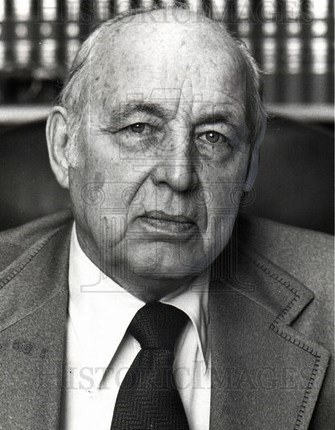
Judge Joseph Maher

Judge Deborah Thomas
Lewis’ first jury deliberated for three weeks in May, 1977 on charges that he killed off-duty Detroit police officer Gerald Sypitkowski July 31, 1976. Like most of his court file from 1976 through 1999, the complete transcript for that hearing is missing, along with his complete Register of Actions. That Register, deemed essential under Michigan court rules, currently begins with a notation that he was tried and convicted in front of Judge Gershwin Drain on April 3, 2000.
The last judge to review Lewis’ complete file, in 2006, Judge Deborah Thomas, said unequivocally that Recorder’s Court Judge Joseph Maher’s failure to specify on the record his reason for the jury dismissal in March, 1977, meant that Lewis should have been acquitted and subject to double jeopardy regarding any new trial
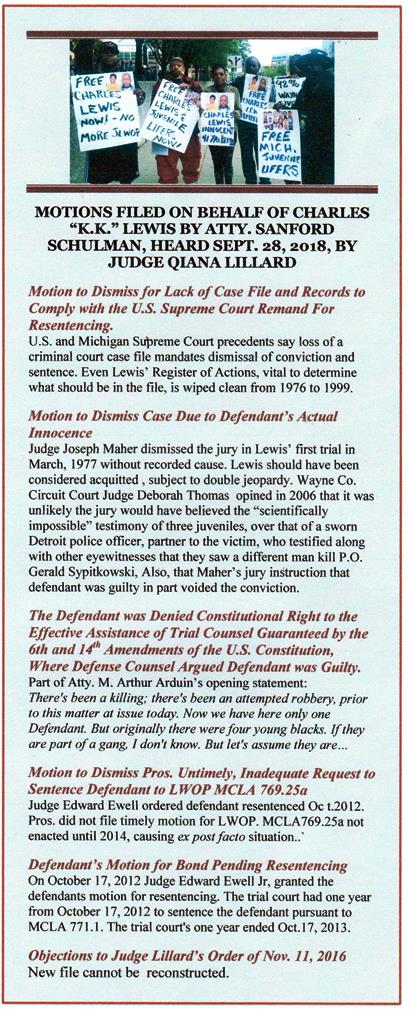 Lewis was re-tried twice anyway, once with a jury that was dismissed without cause when Maher took the case over from a Black visiting judge, and with a jury whose names and racial composition were not recorded, which convicted him. The majority of testimony presented to that jury came from the officer’s partner and other eyewitnesses who identified a completely different perpetrator in a white Lincoln Mark IV.
Lewis was re-tried twice anyway, once with a jury that was dismissed without cause when Maher took the case over from a Black visiting judge, and with a jury whose names and racial composition were not recorded, which convicted him. The majority of testimony presented to that jury came from the officer’s partner and other eyewitnesses who identified a completely different perpetrator in a white Lincoln Mark IV.
“Right now to this day you can’t go get the names of the 12 jurors that you say found me guilty,” Lewis said. “If you can give me those, I’ll bow out right now and you can give me life without parole and I’ll go back to my cell and sit on my bunk for the rest of my life. Because it’s not fair.”’
AP Dawson claimed transcripts of voir dire proceedings on jury panels were not kept until sometime in the 1990’s. However, a Michigan Court of Appeals diss enting opinion in Seaton v. Wayne County Prosecutor, 225 Mich App 1, (1997), involving a defendant who had been incarcerated since 1979, makes clear reference to whether that defendant could request a transcript of his jury voir dire proceedings through the Freedom of Information Act. See http://voiceofdetroit.net/wp-content/uploads/SEATON-v-WAYNE-COUNTY-PROSECUTOR.pdf
Another of Lewis’ motions regarded ineffective assistance of trial counsel, in which the trial counsel argued the defendant was guilty. Lewis’ court-appointed attorney, M. Arthur Arduin, was previously a campaign manager for Recorder’s Court Judge Thomas Poindexter, a leading advocate of keeping Black families out of white neighborhoods during the racially volatile ‘60’s and ‘70’s.
“Look at some of statements we cited in this motion,” Atty. Schulman said. “The lawyer didn’t tell the jury about things that the officers had said. It looked like he was basically arguing that the defendant was already guilty. Judge Deborah Thomas said the attorney didn’t really talk about the scientific impossibility [of juveniles’ version of events]. Impeachment was lacking, he seemed to just concede guilt.”
Lewis’ motion cited the following statement by Arduin in his opening argument:
“There’s been a killing; there’s been an attempted robbery; there’s been a attempted robbery prior to this matter at issue today. Now we have here only one Defendant. But originally there were four young blacks. If they are part of a gang, I don’t know. But let’s assume they’re part of a gang. . . We’ re going to prove four lads who are part of a gang who are — who are expertise. Expertise, -they knew how to steal cars and God only knows if they knew how to rob. Now that’s what we’re going to prove. And they started out on this day, July 31st, four of them — four of them — to steal a car and to go out and commit a robbery. And they took with them the tools of their trade.”
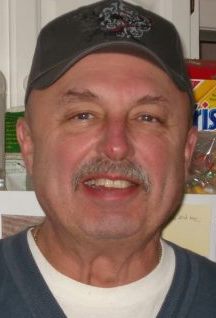
Dennis Van Fleteren
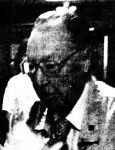
M. Arthur Arduin Sr at 91
Arduin ignored the testimony of the officer’s partner Dennis Van Fleteren and other eyewitnesses who all said they saw another man kill Sypitkowski, in both his opening and closing arguments. He talked only about testimony given by three youths, ages 15 and 16, (names) who had been threatened with charges if they did not testify against Lewis.
“The system failed when I had the Pearson Evidentiary hearing,” Lewis continued. “People v. Pearson is real clear. The prosecutor has 30 days to have a hearing. After thirty days the conviction is automatically vacated. Witnesses were missing at the trial. I filed an appeal, and won the appeal. When we got down there the witnesses came and testified and technically from the testimony I should have been granted a new trial. Guess what happened? The transcripts came up missing. It took me ten years to get a copy of the transcripts.”
 Explaining Lewis’ motion declaring the prosecution’s request to sentence him to LWOP untimely, Atty. Schulman said, “Judge Edward Ewell granted a re-sentencing on Oct. 17, 2012, and there was no timely request by the government at that time that there be a mandatory life sentence.”
Explaining Lewis’ motion declaring the prosecution’s request to sentence him to LWOP untimely, Atty. Schulman said, “Judge Edward Ewell granted a re-sentencing on Oct. 17, 2012, and there was no timely request by the government at that time that there be a mandatory life sentence.”
Schulman said that left open the possibility that Ewell would have re-sentenced Lewis to a term of years, not life without parole. Lewis supplemented his attorney’s statements with the judge’s permission.
“I drafted this motion,” he said. “My situation is unique in this respect. I’m practically the only juvenile lifer that I know of that was actually granted a re-sentencing by a Circuit Court Judge out of the 360 juvenile lifers in state. My re-sentencing was granted in 2012, so now what the prosecutor is saying is that you can apply a statute to me that didn’t become effective until March 4, 2014. While he’s saying that life was the sentence in 1977 and in 2012, and that’s not true. When Judge Ewell granted my re-sentencing in 2012, there was no statute, no case law, nothing that gave him the authority to sentence me to life without parole. So if we move forward to 2014, and you allow the prosecutor to make a recommendation to sentence me to LWOP based on a statute that didn’t exist in 2012, that makes the sentence harsher, and if it makes the sentence harsher, that makes it ex post facto.”
Key arguments toward the conclusion of the hearing dealt with the extraordinary loss of Lewis’ official case file and Register of Actions, and left open the possibility of some light at the end of the tunnel, with regard to converting Lewis’ sentence from LWOP to a term of years. He has already served 42 years.
(Note: in video below, AP Dawson states that agreements made by Ronald Pettway, Jeffrey Mulligan, and Mark Kennedy, which Lewis and his attorney stated they had never seen, are in trial transcripts. There are several references to said agreements in the juveniles’ testimony, but there are no actual documents, and none were introduced.)
“That is sort of the last straw—at least you should have the full file,” Atty. Schulman argued. “The appellate courts have dealt with this. When a transcript isn’t complete, there’s no problem with the COA summarily dismissing, vacating and setting aside a conviction. We’ve presented a list of missing files. There is no record of why the first jury was dismissed, and no record of jury dismissal from second trial with visiting judge. One sticking point is the court doesn’t see the record of the agreements with the juveniles. We’re going to just drop this on the court and say you figure it out?”
Schulman said the loss of the file also hinders his representation of his client.
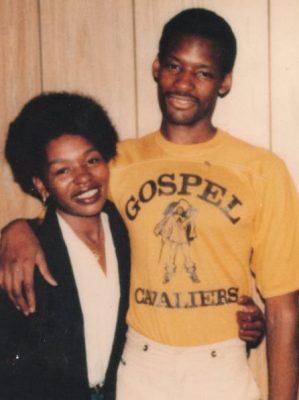
Charles Lewis shortly after his incarceration in 1977, with his mother Rosie Lewis.
“It’s also me—I have to figure it out as well. The Supreme Court has given us the opportunity for re-sentencing, and they’re saying consider factors like what was he like when he was 17, what was going on during the trial, what were the strengths and the weaknesses of the case? Forget the mandatory life sentence for a second. If this was a case of second degree murder, the court would look at whether this case was solid from the beginning, There’s a human factor. The court can say I want to comply with the Miller remand but I can’t because I don’t have the entire file, it’s impossible. The remedy is that the court cannot impose a mandatory life sentence. The court can consider a 20-40 year sentence, a term of years. That’s not an acquittal. It’s not an adjudication on the facts.”
AP Dawson replied, “We’re here to resentence Mr. Lewis. Miller and Montgomery require you to look at mitigating factors. Back in 1977, when Mr. Lewis was sentenced, the sentencing judge had no choice but mandatory life without parole. The Supreme Court of the United States recognized that juveniles are different, and said a mandatory scheme is improper. . . .We’re here to conduct a Miller hearing. That’s it. It’s time to re-sentence [him] so that Mr. Lewis can know whether he’s going to serve 40 years to something or life in prison. There is nothing that prohibits you from concluding during that hearing that I’m going to give him a term of years because I’m missing information. If you want to incorporate the missing files into your determination to give him a term of years, that’s your prerogative. Nothing prohibits you from doing something like that.”
Asserting that everything in the Sept. 28 hearing had already been covered, AP Dawson had referred to the 1993 movie “Groundhog Day.” In it, actor Bill Murray plays a weatherman covering a Groundhog Day event, but then is caught in a time loop where the day keeps repeating itself over and over.

Detroit Reentry Center (formerly Ryan CF)
“In Groundhog Day, Bill Murray got up every day and got it wrong,” Schulman observed in response. “But one day he got it right. He got it right in the end. The problem is we haven’t gotten it right. While the government points out other factors, you have to remember that Mr. Lewis’ cert was granted by the United States Supreme Court, and one of the factors, a key factor, is the nature and circumstances of the case. You can’t really skirt over those factors: whether the first jury was properly dismissed, whether you have an agreement with these juveniles to give them a motive to lie. We have to ensure we don’t get it wrong. The past two years has been the court’s opportunity and the administrator’s opportunity to get it right. The only remedy is to ensure that you don’t get it wrong.”
At the conclusion of the hearing, Judge Lillard again skirted the issue of having Lewis transferred to the Ryan Correctional Facility in Detroit, to facilitate visits from his attorney as well as any experts that may be called to a mitigation hearing. Lewis told the attorneys to confer with Criminal Court Presiding Judge Timothy Kenny regarding the matter.
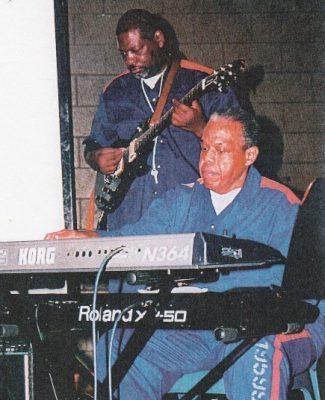
Charles Lewis, now 59, on guitar, Bill Lemons, now 74, on keyboard, both noted musicians, play in prison band.
In addition to its proximity, Ryan, now known as the Detroit Re-Entry Center, provides improved health care and food for the people held there, and also programming geared to help them re-enter society. Lewis, now 59, contracted diabetes while incarcerated and now suffers a severe case that is threatening his eyesight. He has also had three heart attacks in prison, with the MDOC refusing to provide him with a stent for the last one.
In 42 years, he has gone from being an intelligent, musically-talented, and athletically-talented 17-year-old who took care of his four younger sisters and brothers, including his brother who is blind. His mother Rosie recalls how he took care of him, teaching him to ride the city buses and navigate his way around the world. Lewis went to both parochial and public schools and got good grades. He was about to graduate high school, and looked forward to college and a life sharing his talents with the world.
Since he has been in prison, he has obtained a paralegal certificate (he rated first on the test for paralegal training when he first took it at Jackson), and has used those skills both for himself and to help others with their cases. He also obtained a degree in culinary arts, among other accomplishments.
He has maintained contact with all his siblings, nieces and nephews, through the years, calling each of them on their birthdays and participating thereby in family celebrations, even if only for the 15 minute phone calls allotted. For someone incarcerated for 42 years, he has maintained his mental strength and sanity, counseling others to “think positive.”
“I still feel positive that I am coming home,” Lewis said. “I never gave up hope and began fighting for that day the minute I entered prison.”
Videos: Debra Simmons came to court to support Charles Lewis.
Below: Minister Reynolds X, long-time friend of Lewis and his family, speaks out against racist system of justice in U.S.
CALL JUDGE QIANA LILLARD’S OFFICE AT 224-2391 AND ASK HER ASST. TO REGISTER YOUR SUPPORT FOR CHARLES K.K. LEWIS’ RELEASE.
HELP PROVIDE SUPPORT FOR HIS LEGAL DEFENSE AT SITE CREATED BY HIS SISTER WENDY LEWIS: https://www.gofundme.com/FreeCharlesLewis-JLWOP
FULL MOTIONS ARGUED AT HEARING SEPT. 28, 2018:
Motion to dismiss due to lack of court file: http://voiceofdetroit.net/wp-content/uploads/lewis.charles.mtn_.5.dismiss.file-1.pdf.
Motion to dismiss due to actual innocence: http://voiceofdetroit.net/wp-content/uploads/lewis.charles.mtn_.6.dismiss.actual.innocence.pdf.
Motion to dismiss due to ineffective assistance of trial counsel: http://voiceofdetroit.net/wp-content/uploads/lewis.charles.mtn_.1.iac_.pdf .
Motion to dismiss due to untimely request for LWOP http://voiceofdetroit.net/wp-content/uploads/lewis.charles.mtn_.2.dismiss.769a-1.pdf
Motion for bond pending re-sentencing: http://voiceofdetroit.net/wp-content/uploads/lewis.charles.mtn_.3.bond_.pdf
Charles Lewis objections to Judge Lillard’s order to reconstruct file http://voiceofdetroit.net/wp-content/uploads/C-Lewis-Objections-6-23-17.compressed-1-1.pdf.
Judge Deborah Thomas’ 2006 opinion after reviewing Lewis full case file, which has since gone missing (note: Pros. Dawson questioned the validity of this opinion. Judge Thomas issued it after being informed by Atty. Craig Daly that her original two-page opinion related to another case.) http://voiceofdetroit.net/wp-content/uploads/Judge-Deborah-Thomas-2006-opinion.pdf
#FREECHARLESLEWISNOW, #FREEMICHIGANJUVENILELIFERSNOW, #ENDMASSINCARCERATION, #ENDSCHOOLTOPRISONPIPELINE
DONATE TO VOICE OF DETROIT TO KEEP OUR STORIES COMING:
Voice of Detroit is published pro bono. You don’t have to pay to access our stories. But there are substantial out of pocket costs associated with its publication. Currently we are in desperate straits because the editor has been forced to move due to the sale of her apt. building to greedy developers, so any donation amount is much appreciated. Donate by clicking https://www.gofundme.com/VOD-readers-up.




